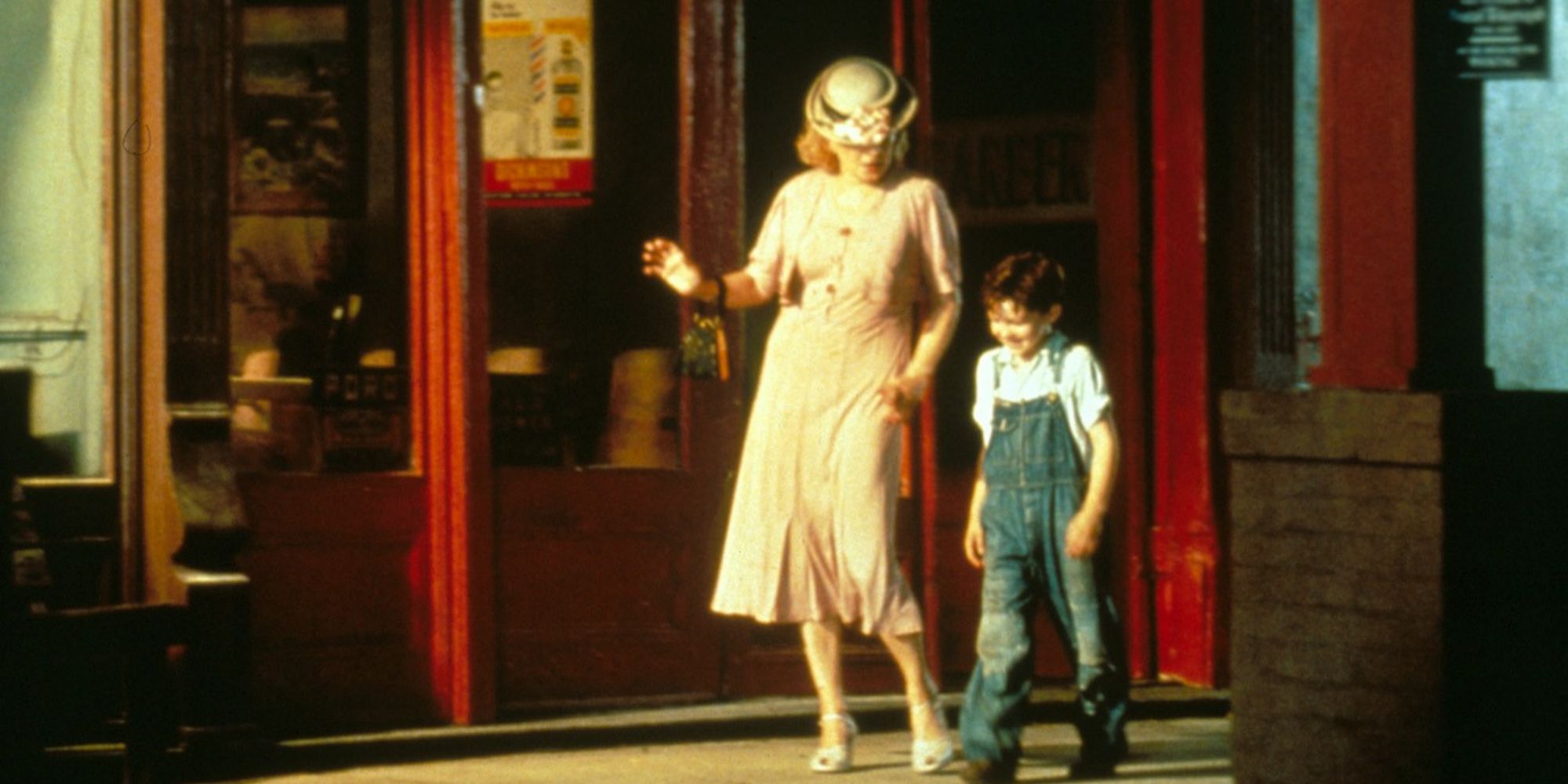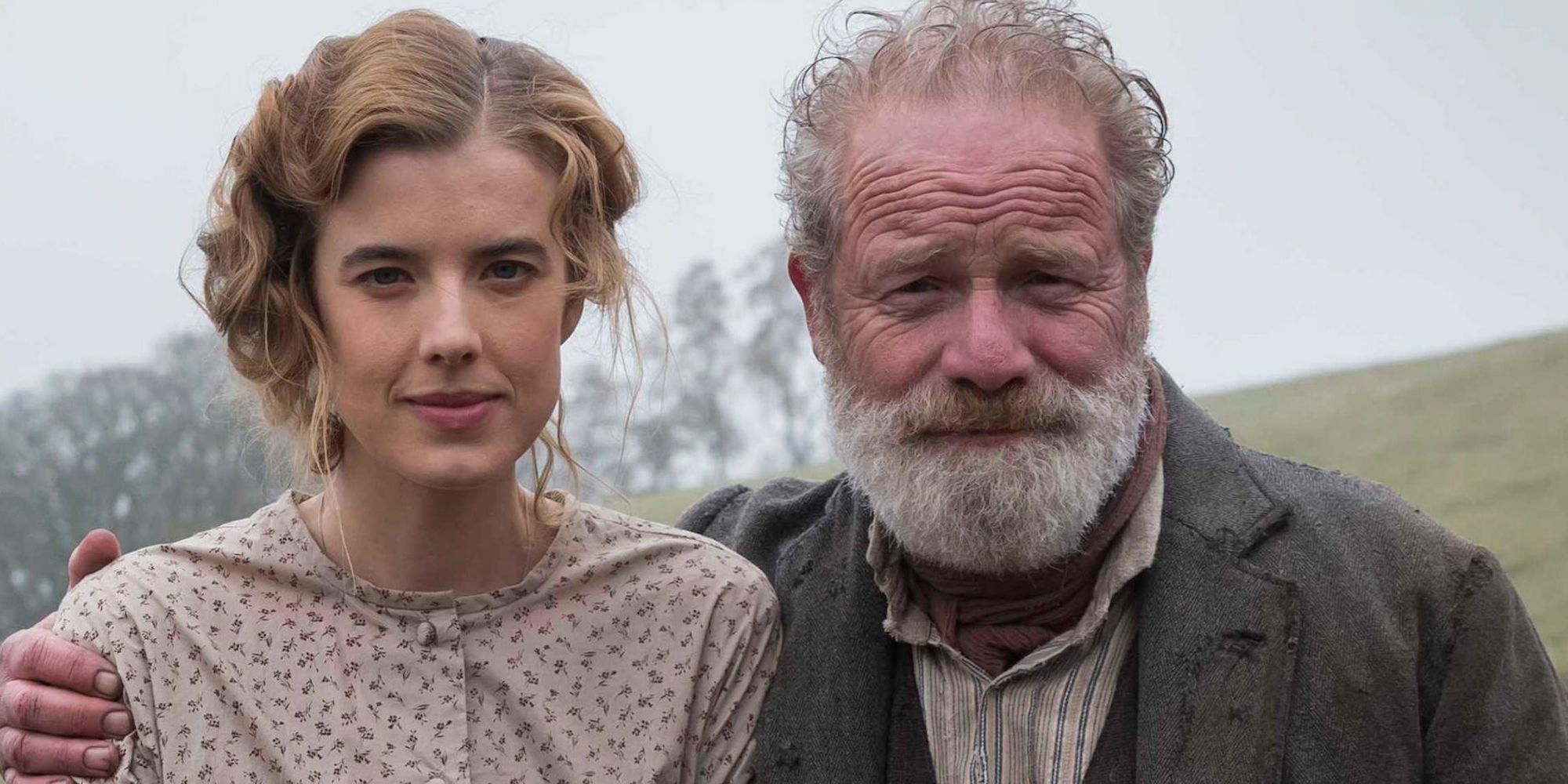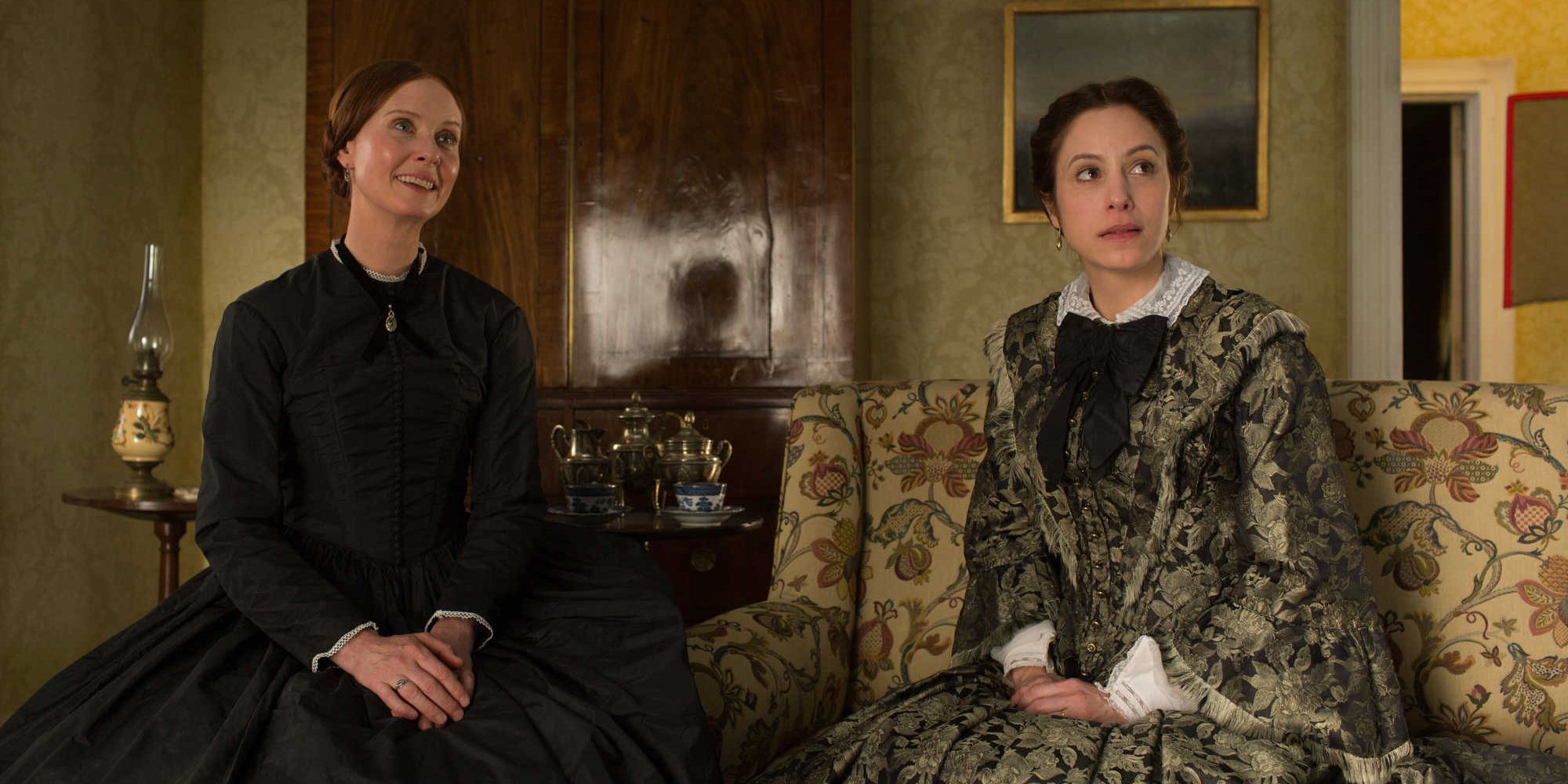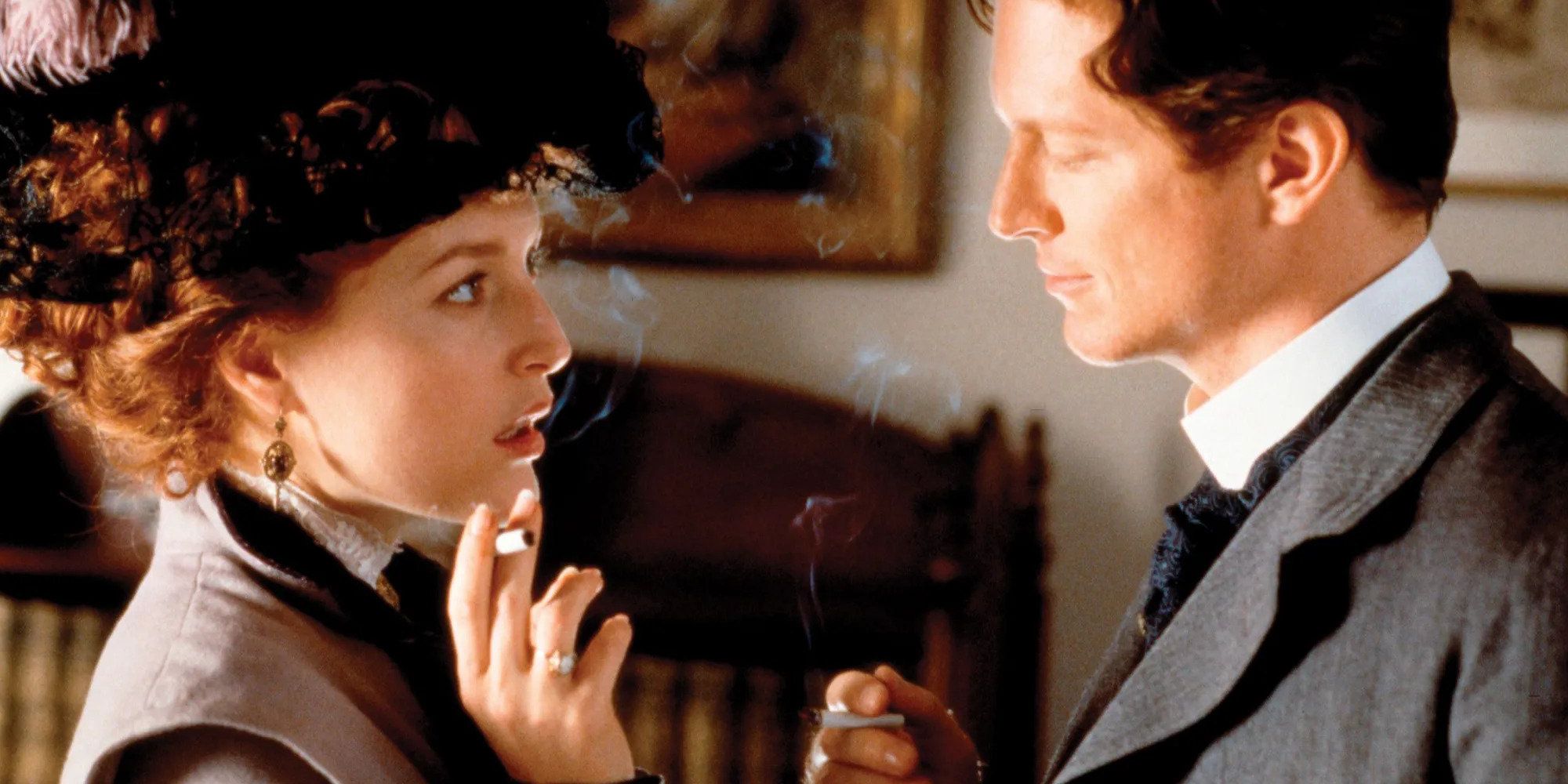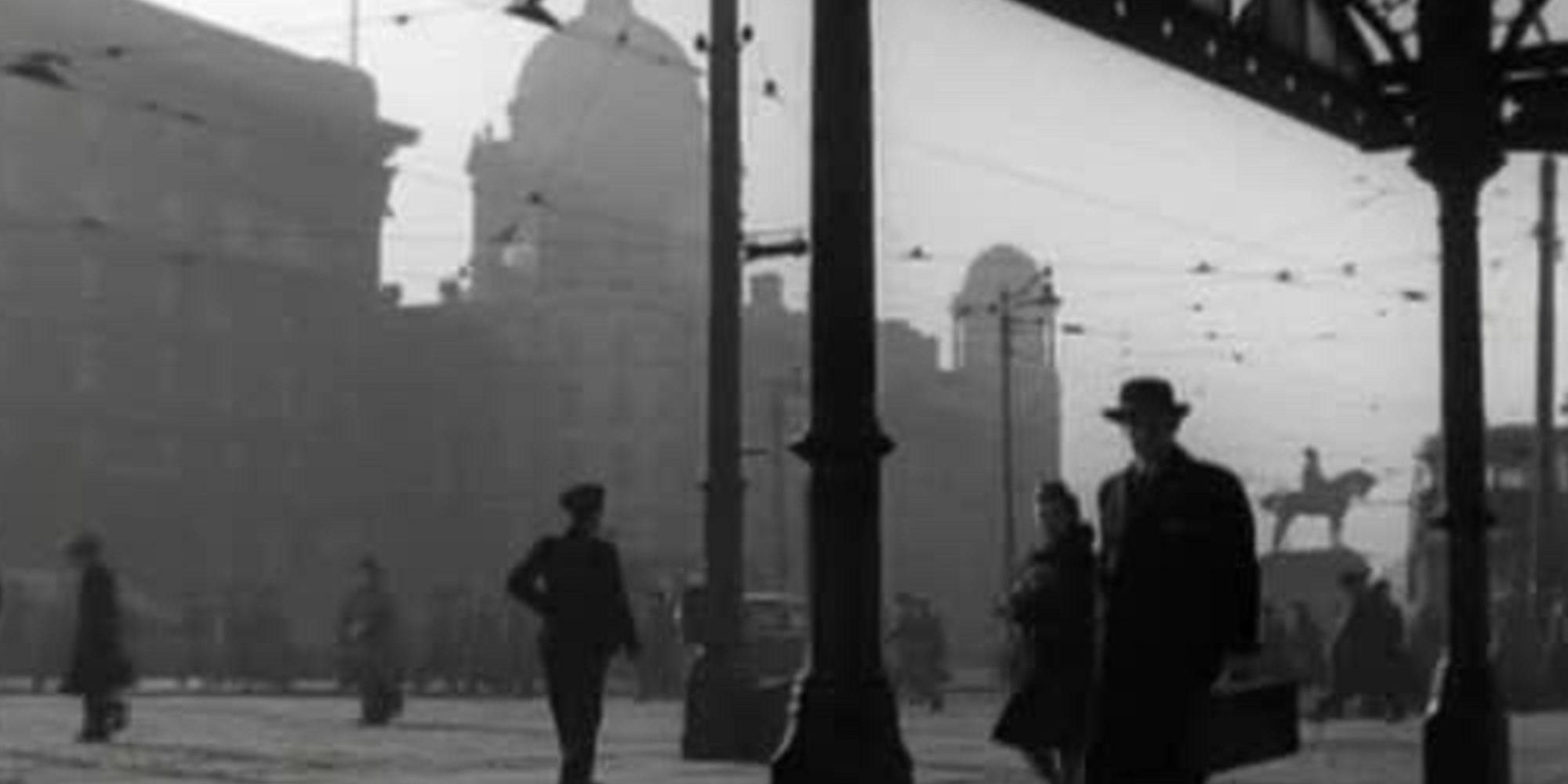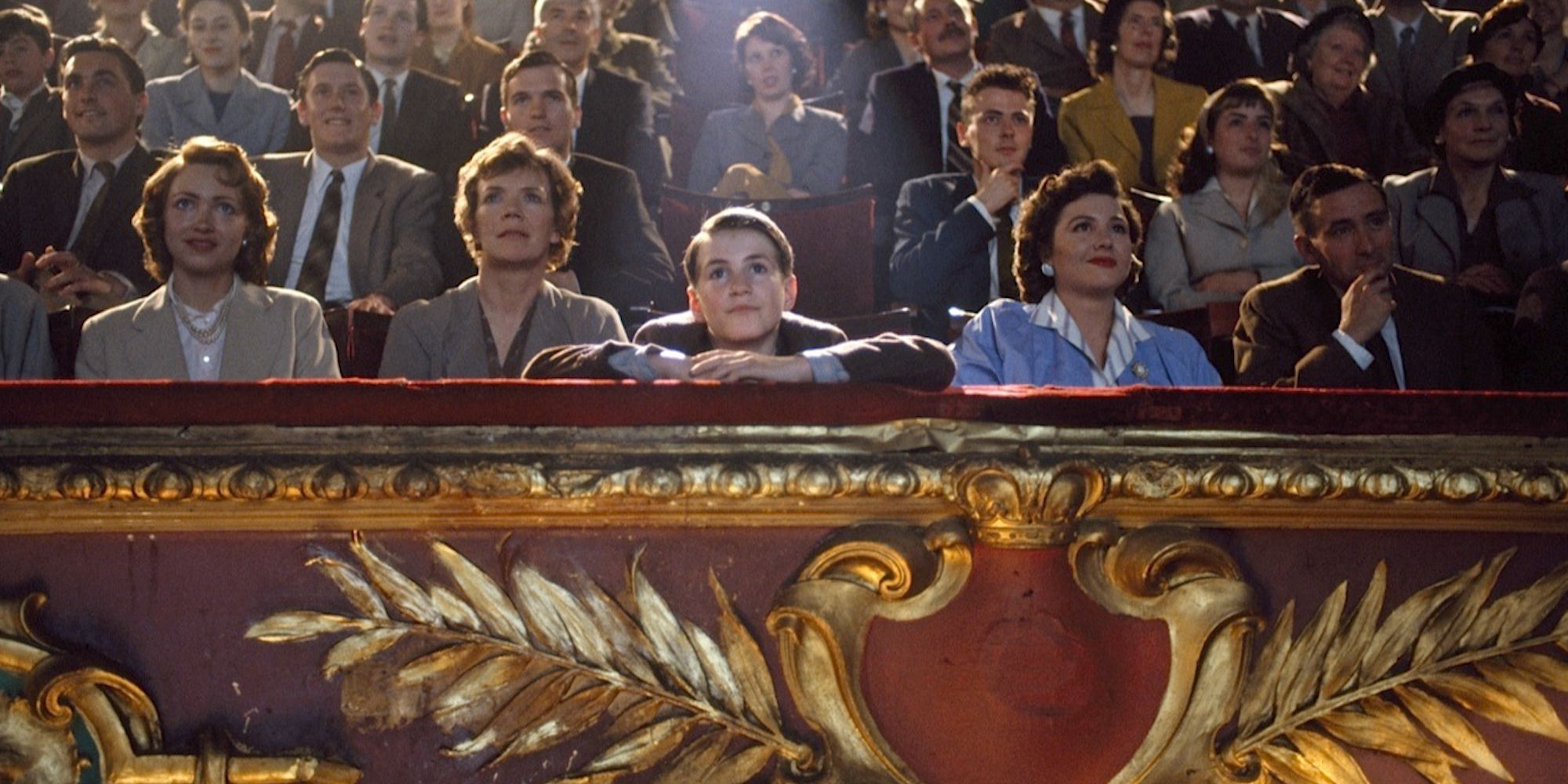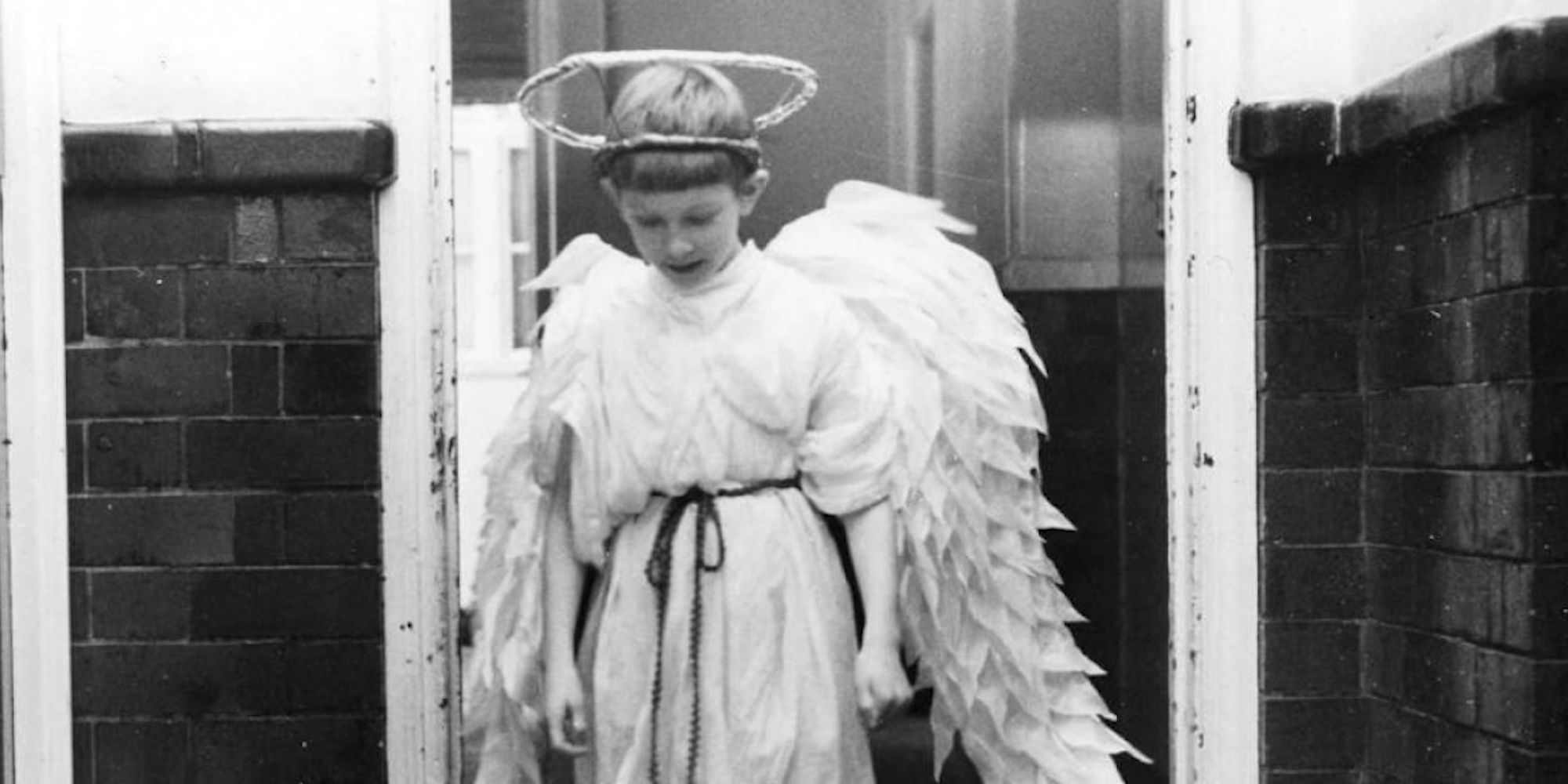Terence Davies, who passed away in October, was one of the leading British writers and directors of the last four decades. Beginning with his debut trilogy of shorts in 1983, Davies crafted a distinctive and deeply personal body of work that frequently explores themes of memory and identity. One of his most notable projects is Distant Voices, Still Lives, a poignant and visually stunning exploration of family dynamics. Another gem in his filmography is The Long Day Closes, a beautifully nostalgic journey into the director’s childhood.
Davies’s work was also hugely shaped by literature. Several of his films were adaptations of classic novels, while others were biopics of renowned writers. He specialized in period pieces, often set in his hometown of Liverpool during the 1940s and ’50s. Both stylistically inventive and psychologically astute, Davies forged his own cinematic path, largely rejecting the then-current trends in British filmmaking. His filmography is unique and rich, earning him the respect of fans on IMDb. These are Terence Davies’ highest-rated movies on IMDb, a testament to his remarkable film legacy.
10 ‘The Deep Blue Sea’ (2011)
IMDb: 6.2/10
The Deep Blue Sea (not to be confused with the horror about genetically enhanced sharks) is a drama set in post-war London, adapted from Terence Rattigan‘s play. Rachel Weisz is Hester Collyer, a woman trapped in a loveless marriage with a respectable judge, Sir William Collyer (Simon Russell Beale). She begins a passionate affair with a troubled and charismatic former Royal Air Force pilot, Freddie Page (Tom Hiddleston), who feels adrift now that the war is over.
Most of the action takes place over a single day, which Hester spends in Freddie’s flat, contemplating suicide. Through flashbacks, viewers slowly come to understand the dynamics of Hester’s marriage and her relationship with Freddie. The former is comfortable but deadening, the latter exciting but unstable. Fittingly, the title is taken from the phrase ‘between the devil and the deep blue sea,’ referring to two equally undesirable options. Weisz is compelling as a woman struggling to chart her course, carrying much of the film on her own.
The Deep Blue Sea
- Release Date
- September 11, 2011
- Rating
- R
- Runtime
- 98
Watch on Kanopy
9 ‘The Neon Bible’ (1995)
IMDb: 6.2/10
The Neon Bible takes place in a small Southern town during the 1940s and centers on David (Jacob Tierney), a sensitive young boy grappling with the challenges of adolescence in a tumultuous world. His abusive father (Denis Leary) has gone off to fight in World War II, so David is raised by his distant mother (Diana Scarwid) and eccentric aunt Mae (Gena Rowlands). Throughout a train journey, David reflects on his life, which is marked by religious fervor, racial tensions, and societal upheaval.
David’s lone means of escape is his vivid imagination, which the movie depicts through some creative and surreal scenes. Despite some intriguing moments, The Neon Bible unfolds at a languid pace, which is sure to try the patience of many viewers. This may explain why it was not so well-received on release. Davies has also expressed reservations about the movie. “The Neon Bible doesn’t work, and that’s entirely my fault,” he has said. “The only thing I can say is that it’s a transition work. And I couldn’t have done The House of Mirth without it.”
Watch on Tubi
8 ‘Sunset Song’ (2015)
IMDb: 6.4/10
Adapted from a classic novel, Sunset Song tells the story of Chris Guthrie (Agyness Deyn), a resilient young woman who looks after her father’s (Peter Mullan) farm in Scotland in the early 20th century. Her father is a tyrant whose abuse leads Chris’s mother to commit suicide, but Chris continues to care for him nevertheless. She also meets and marries a man named Ewan (Kevin Guthrie), but the breakout of the Great War disrupts their lives.
Sunset Song is harsh without being overwhelming, and the imagery is frequently beautiful. Cinematographer Michael McDonough captures the Scottish landscape in epic 65mm film, and it’s a pleasure to behold. The visuals are complemented by a soundtrack full of period Scottish folk songs, which help to conjure a sense of time and place. Furthermore, Deyn’s performance is incisive and profoundly compelling, making Chris an unforgettable character.
Watch on Tubi
7 ‘A Quiet Passion’ (2016)
IMDb: 6.5/10
“This is my letter to the world that never wrote to me.” A Quiet Passion is a biopic about American poet Emily Dickinson (Cynthia Nixon), author of gems like “Hope” is the thing with feathers and Tell all the truth but tell it slant. It follows Dickinson from her school days to her reclusive adulthood, in which she wrote many poems that are now renowned but received little attention in her lifetime. The film is a detailed character study and an exquisite recreation of late 1800s Massachusetts.
Davies delves into Dickinson’s relationships with her family and friends, highlighting her wit, intellect, and the challenges she faced as she carved her path in a restrictive society. He takes a poetic approach inspired by his subject’s work. Nixon’s performance is similarly stellar, playing Dickinson with richness and complexity, including her pensiveness, rage, and sometimes madness. It’s a tremendous acting achievement, proving audiences often take Nixon’s mighty talent for granted.
6 ‘Benediction’ (2021)
IMDb: 6.7/10
“Why must you make bad things sound so beautiful?” Like A Quiet Passion, Benediction is a portrait of a writer, this time focusing on soldier and war poet Siegfried Sassoon. He served in the trenches of World War I and later wrote scathing poems critiquing what he saw as a misguided campaign. The film explores his stance against the war and his time spent in a psychiatric facility, as well as his relationships with several young men and eventual marriage to a woman.
Jack Lowden and Peter Capaldi, both fantastic performers who do a great job with the already impressive material, play Sassoon as a young and mature man, respectively. Benediction was Davies’s final film and one of his most acclaimed, as Sassoon’s story clearly resonated deeply with him. He paints a moving picture of the man, by turns tender and sad, and skillfully constructed, weaving in archival footage and narration of Sassoon’s poems.
Watch on Kanopy
5 ‘The House of Mirth’ (2000)
IMDb: 7.0/10
The House of Mirth is yet another adaptation of a classic work of literature, this time based on the novel by Pulitzer-winner Edith Wharton. Set in the opulent high society of early 20th-century New York, it tells the tragic tale of Lily Bart (Gillian Anderson), a beautiful and intelligent young woman trying to make her way through the complexities of societal expectations and financial constraints. Lily aspires to secure a prosperous marriage to maintain her social standing, but her choices lead her down a path of heartbreak and disillusionment.
As usual, Davies draws the most out of his actors. While perhaps a surprising casting choice, Anderson delivers a compelling performance as Lily, bringing depth and vulnerability to the character. The House of Mirth beautifully captures the luxurious yet suffocating world of the Gilded Age, where appearances are paramount, and morality is often sacrificed for social advancement. The social milieu depicted here is polite and mannered on the surface, but the smiles and careful words conceal harsh judgment and casual cruelty.
Watch on Fubo
4 ‘Of Time and the City’ (2008)
IMDb: 7.2/10
Of Time and the City, Davies’s lone documentary feature, is a cinematic memoir of the director’s hometown, Liverpool. Departing from traditional documentary styles, Davies combines archival footage, poetry, and personal narration to create a lyrical exploration of the city’s transformation over the years. The film is a nostalgic journey, looking at Liverpool’s working-class roots, the impact of postwar changes, and the influence of cultural shifts on the community.
Davies clearly combed through mountains of material to put this project together. The doc is assembled from thousands of clips from films, TV programs, and news bulletins, connected by a soundtrack of classical music and pop songs—The Beatles feature heavily, of course. Of Time and the City is deeply personal, the narrative guided by Davis’ memories and reflections. However, in the process, it becomes a collective history, not just of Liverpool but of postwar Britain more broadly. The final product is a fantastic meditation on the weight of the past.
Watch on Kanopy
3 ‘The Long Day Closes’ (1992)
IMDb: 7.3/10
Bud (Leigh McCormack) is a young boy from a Catholic working-class family growing up in postwar Liverpool. The Long Day Closes is a snapshot of his school and family life, marked by both joy and hardship. He’s tormented by bullies on the playground and surrounded by bleakness, but the local cinema provides an escape. He spends hours there, allowing his imagination to run wild.
The Long Day‘s narrative is impressionistic rather than linear, zigzagging and looping around rather than unfolding chronologically. It’s a mosaic of dreamlike sequences, intimate family moments, and snippets of popular culture. Taken together, they evoke that era with both nostalgia and dread. The Long Day clearly draws on Davies’s own experiences as a kid in 1950s Liverpool, adding to its realism. Bud, with his artistic sensibility and feelings of alienation from the society around him, is Davies’s most autobiographical character. Another highlight is the soundtrack, which prominently features songs by Nat King Cole.
Watch on Criterion
2 ‘Distant Voices, Still Lives’ (1988)
IMDb: 7.4/10
Distant Voices, Still Lives was Davies’s first proper feature. It comprises two segments, each with the same cast playing different characters. The first focuses on a family in 1940s Liverpool living under a violent and hateful father (Peter Postlethwaite). The second follows the children in the 1950s as they try to make their own lives. It’s a clear-eyed rather than rose-tinted look at the past, capturing the good as well as the bad.
As with The Long Day Closes, Distant Voices, Still Lives is personal and reflects its creator’s childhood in this environment. Aesthetically, the film is bold and creative, making use of meticulously composed tableaux and extensive tracking shots. The soundtrack is also central here, serving as a way to connect seemingly disparate scenes. In this way, the film marked a break with the more realist British cinema that was dominant at the time. Distant Voices, Still Lives was highly acclaimed on release and has since appeared on some publications’ lists of the greatest British films of all time.
Watch on Tubi
1 ‘The Terence Davies Trilogy’ (1983)
IMDb: 7.5/10
Davies’s earliest work is emblematic of his filmography as a whole. This trilogy, made up of three short films, once again takes experiences from his youth and gives them cinematic life. In the first film, Children, Davies reflects on the innocence of childhood amidst the backdrop of a tight-knit Catholic community. Madonna and Child delves into the complex relationship between the director and his mother. The project concludes with Death and Transfiguration, a reflection on mortality and the impact of time on personal identity.
Davies completed the latter two shorts while at film school and showed them around festivals, where they won awards and went a long way toward igniting his career. The trilogy is shot in stark black-and-white, fitting for the often brutal subject matter. As ever, though, he balances out the unflinching content with gorgeous imagery and music, which makes even the mundane moments seem poetic. It’s impressively mature for a debut, both in terms of its stylistic confidence and emotional depth.
Watch on Criterion
Source link

